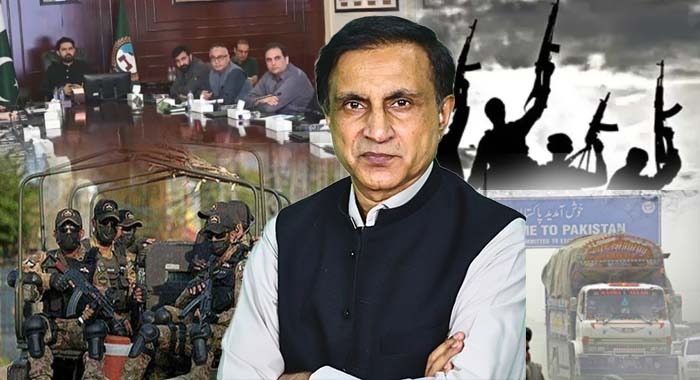The first cabinet meeting under Chief Minister Sohail Afridi in Khyber Pakhtunkhwa has set the stage for a series of critical decisions that could shape the province’s security and its trade relations with Afghanistan. The most significant move was the cabinet’s approval to withdraw the law of Action in Aid to Civil Powers—a law enabling the government to request military assistance when civil authorities, primarily the police, are unable to control terrorism or maintain law and order.
While politically this may appear as a bold assertion of provincial authority, the practical implications are far more complex. History shows that military operations in KP, from Swat to Waziristan, successfully cleared regions of insurgents. However, after the army withdrew, the resurgence of terrorists was almost inevitable due to gaps in civil administration and local enforcement mechanisms. Removing the army now, amid ongoing security threats, could compromise the safety of citizens and embolden insurgents. Recent incidents—such as the night operations in Bajaur neutralising 20 terrorists, attacks on five checkposts in Tirah, and clashes in Bannu resulting in more casualties—underscore the persistent threat that remains active in the province.
The withdrawal decision also raises questions about the efficacy of provincial governance in handling terrorism independently. Peace talks and agreements with militant groups, brokered in international forums like Qatar, Doha, and Istanbul, are national and international issues, not purely provincial matters. Yet, the KP government has attempted to assert control without adequate consultation with state institutions. While the intent may be to demonstrate provincial autonomy, the lack of coordination and clarity could create confusion and weaken the overall counter-terrorism strategy.
Politically, the withdrawal of Action in Aid to Civil Powers sends mixed messages. On the one hand, the government professes support for operations against terrorism; on the other, it removes a critical legal mechanism that allows the army to act in urban areas. This contradiction, compounded by unverified social media claims regarding drone attacks and cross-border incidents, fuels public confusion and risks undermining trust in state institutions. Effective peace and counter-terrorism require institutional coordination, intelligence-based operations, and engagement with all stakeholders, not political theatre or unilateral declarations.
Parallel to KP’s internal security challenges is the ongoing tension with Afghanistan regarding trade. Afghanistan’s recent announcement to halt trade through Pakistan and seek alternative routes is more than an economic move; it has security, logistical, and strategic implications. Afghanistan is a landlocked country, and Pakistan provides the shortest and most cost-effective trade corridor. Bilateral trade, estimated at around $2 billion, relies heavily on this route, which connects major Afghan business hubs like Kabul and Jalalabad. Alternative routes via Iran or Central Asia are longer, more expensive, and often logistically impractical, particularly for the middle-class commercial sector concentrated in eastern Afghanistan. Past attempts to bypass Pakistan’s trade corridors, including the 1979 initiative, failed precisely because of these limitations.
Halting trade is also intertwined with security. Pakistan cannot facilitate commerce with Afghanistan while facing direct attacks within its borders. Open support for groups such as the TTP, which Afghanistan has recently begun to provide more openly, further complicates negotiations. Experience shows that attempts to use economic measures alone as leverage are ineffective if the security environment remains hostile. Without peace at home, trade cannot thrive, and commercial ambitions will falter.
Moreover, regional dynamics exacerbate the situation. India is reportedly attempting to subsidise Afghanistan and use it as a base for activities hostile to Pakistan, while Iran’s involvement in trade negotiations brings its own economic interests. Afghanistan’s selective responses to regional pressures, while maintaining silence on others, illustrate a double standard that complicates bilateral cooperation.
Ultimately, the KP security decision and the Afghanistan trade dispute reflect a larger reality: peace and stability in Pakistan are prerequisites for any economic or diplomatic engagement. With ongoing terrorist attacks, civilian casualties, and political confusion, there can be no meaningful trade or development until security is restored. Prioritising provincial authority over coordinated, evidence-based counter-terrorism, while simultaneously negotiating with a neighbour that is selectively hostile, is a dangerous gamble.
The KP cabinet’s decisions, combined with Afghanistan’s trade stance, highlight a fragile equilibrium in regional politics. For meaningful progress, Pakistan requires a strategy that integrates political dialogue, robust security enforcement, and pragmatic engagement with neighbours. Without these elements, the province may face increased insecurity, the country’s trade corridors could be disrupted, and long-term regional stability will remain elusive.





